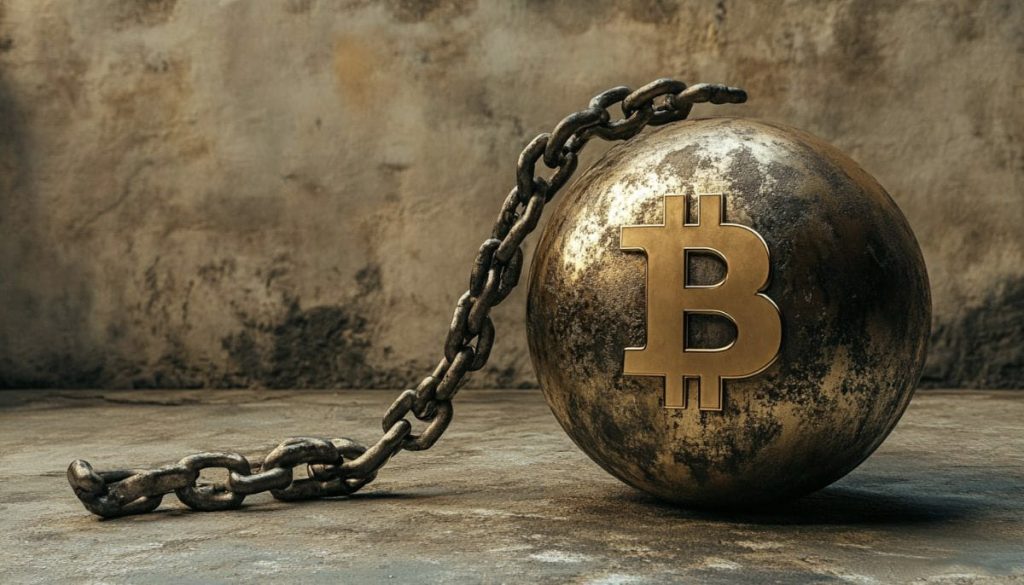A lawmaker demands more stringent loan screening at neobanks, citing a “skyrocketing” increase in defaults, according to media reports.

Media outlets reported on October 20 that the number of South Korean youths who trade cryptocurrency and default on loans from neobanks is “skyrocketing.”
This is “due to the large number of neobank accounts linked to” cryptocurrency exchange wallets, according to “analysis” in the media.
South Korean Youth Crypto Keenness Comes at a Price?
The allegations followed the data’s release, which revealed a rise in K Bank loan defaults among clients in their teens and twenties.
Based on available data, 4.05% of K Bank’s younger clientele have fallen behind on their bank loans.
Known for being an Upbit partner, K Bank is a cryptocurrency exchange. Younger South Koreans who trade cryptocurrency have opened a significant number of accounts with the bank recently.
Consequently, the bank is now on track to complete its initial public offering (IPO) by the end of this month.
The South Korean government said Thursday that it has decided to administer a regular mental health checkup for those aged between 20 and 34, starting next year as part of the state-run national health examination program.https://t.co/FbjD67l4Yd
— The Korea Herald 코리아헤럴드 (@TheKoreaHerald) October 20, 2024
Numerous media sources in South Korea, such as Digital Daily, asserted that there had also been a spike in bank failures at other neobanks.
Kakao Bank is one of them; in August 2022, the bank partnered with the cryptocurrency exchange Coinone.
The Financial Supervisory Service provided the information in response to a request for freedom of information made by legislator Kim Hyun-jung. Kim is a member of the Political Affairs Committee of the National Assembly.
Banks have incurred losses of approximately $288 million due to young borrowers who have not repaid their debts.
💸@Microsoft report says the stolen crypto funds reportedly finance over half of North Korea’s nuclear and missile programs.#Microsoft #NorthKorea #ThreatGroupshttps://t.co/rADBf4yMp1
— Cryptonews.com (@cryptonews) October 17, 2024
That represents a fiat value increase of approximately 484% compared to data from December 2021, Segye Ilbo reported.
Additionally, since the end of 2023, there has been a 0.3% increase in cases. According to the outlets, K Bank’s rate was nearly twice as high as that of its rival neobanks.

Lawmaker Calls for Stricter Loan Screening
According to the data, 2.1% of Kakao Bank clients who are 29 years of age or younger have missed payments on their personal loans.
The rate was 1.75% at Toss Bank, a neobank that is not currently affiliated with a domestic cryptocurrency exchange.
South Korea is considering scrapping regulations that require the presence of humans for algorithm-based trading of its currency https://t.co/UbLkP2QvF8
— Bloomberg (@business) October 18, 2024
Media outlets were informed by purported financial industry “experts” that “twentysomethings with K-Bank accounts linked to Upbit” might have “borrowed money for cryptocurrency investment” and subsequently “lost the ability to repay their loans.”
This, according to Kim, demonstrated the need for neobanks to be more selective in their loan screening procedures.
“Neobanks’ loan accessibility offer some positive aspects. But this can also make it easier for young people to take out loans beyond their means. This can expose them to serious financial risks. We need measures that stop young people from taking out loans they can’t pay back.”South Korean lawmaker Kim Hyun-jung















Leave a Reply